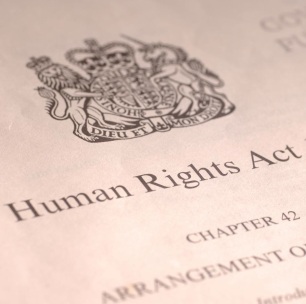We
verwachten een zonnige en inspirerende dag op een sfeervolle locatie.
En na afloop is er voldoende tijd om uit te blazen in de nabijgelegen
mooiste tuin<https://www.hortusleiden.nl/> van Nederland en het prachtige Leiden verder te verkennen.
Meer info:
Irregular migrants who do not enjoy a status of lawful residence in a host state are in a particularly vulnerable position. They are often denied basic social and economic rights and are under the constant threat of being caught by the immigration authorities who seek the termination of their unlawful residence. The Member States of the EU are confronted with a significant number of irregular migrants. In this symposium, the prospect of irregular migrants who have lived in the host state for a long time to obtain lawful residence through regularisation is discussed from the perspective of the human right to respect for private life under Article 8 of the European Convention on Human Rights. Even though the European Court of Human Rights consistently emphasises that the competence to decide on the entry and residence of foreign nationals, there have been a number of cases in which the Court has held that the state is obliged to provide for lawful residence. At the same time, some Member States have provisions in domestic immigration law providing for the regularisation of irregular migrants. To what extent is there a positive obligation to provide lawful residence? Under what circumstances could such an obligation exist? Could the EU Returns Directive provide for a legal basis for regularisation of these migrants? The objective of the symposium is to investigate the potential of the right to private life under Article 8 ECHR for the regularisation of irregular migrants.
Confirmed speakers:
-
Ciara Smyth (NUI Galway)
- Eva Hilbrink (Stichting Migratierecht Nederland)
-
Kevin Fredy Hinterberger (Universität Wien)
-
Martijn Stronks (VU University Amsterdam)
-
Mark Klaassen and Gerrie Lodder (Leiden University)
-
Agnes van Steijn (European Court of Human Rights)
-
Julien Hardy (Cabinet d’avocats Casabel)
| 09.30h - 10.00h | Registration |
| 10.00h - 10.15h | Opening |
| 10.15h - 10.45h | Agnes van Steijn (European Court of Human Rights), Litigating the right to respect for private life at the European Court of Human Rights |
| 10.45h - 11.15h | Ciara Smyth (NUI Galway), The use of the best interests of the child in the Article 8 ECHR jurisprudence |
| 11.15h - 11.45h | Mark Klaassen (Leiden University), Rethinking exceptionality: Testing compliance with the right to respect for private and family life |
| 11.45h -12.15h | Kevin Fredy Hinterberger (Universität Wien), A proposal for an EU Regularisation Directive |
| 12.15h -13.00h | Lunch |
| 13.00h - 13.30h | Julien Hardy (Casabel Cabinet d'avocats), Regulatisation of irregular migrants in Belgium |
| 13.30h - 14.00h | Eva Hilbrink (Stichting Migratierecht), The CJEU and the Decline of Immigration Control as a Carte Blanche Legitimate State Interest |
| 14.00h - 15.00h | Case discussion and panel discussion |
| 15.00h - 15.30h | Reflections from the course 'The Immigrant Child' |
| 15.30h - 16.30h | High tea |
Kamerlingh Onnes Building, Steenschuur 25, Leiden
Fee for Lawyers: €195,00
Common fee: €75,00
Student fee: €25,00
Participation for members 'Specialisten Vereniging Migratierecht Advocaten' is free of charge
http://www.leidenlawconference.nl/thuis/57-gekommen-um-zu-bleiben-the-right-to-respect-for-private-life-and-the-regularisation-of-irregular-migrants#registration-prices
Interessant artikel? Deel het eens met uw netwerk en help mee met het verspreiden van de bekendheid van dit blog. Er staan wellicht nog meer artikelen op dit weblog die u zullen boeien. Kijk gerust eens rond. Zelf graag wat willen plaatsen? Mail dan webmaster@vreemdelingenrecht.com In verband met geldwolven die denken geld te kunnen claimen op krantenartikelen die op een blog als deze worden geplaatst maar na meestal een dag voor de krantenlezers aan leeswaardigheid hebben ingeboet terwijl wij vreemdelingenrecht specialisten ze soms wel nog jaren gebruiken om er een kopie van te maken voor een zaak ga ik over tot het plaatsen van alleen het eerste stukje. Ja ik weet het: de kans dat u doorklikt is geringer dan wanneer het hele artikel hier staat en een kopie van het orgineel maken handig kan zijn voor uw zaak. Wilt u zelf wat overnemen van dit weblog. Dat mag. Zet er alleen even een link bij naar het desbetreffende artikel zodat mensen niet alleen dat wat u knipt en plakt kunnen lezen maar dat ook kunnen doen in de context. Subscribe to Vreemdelingenrecht.com blog by Email






